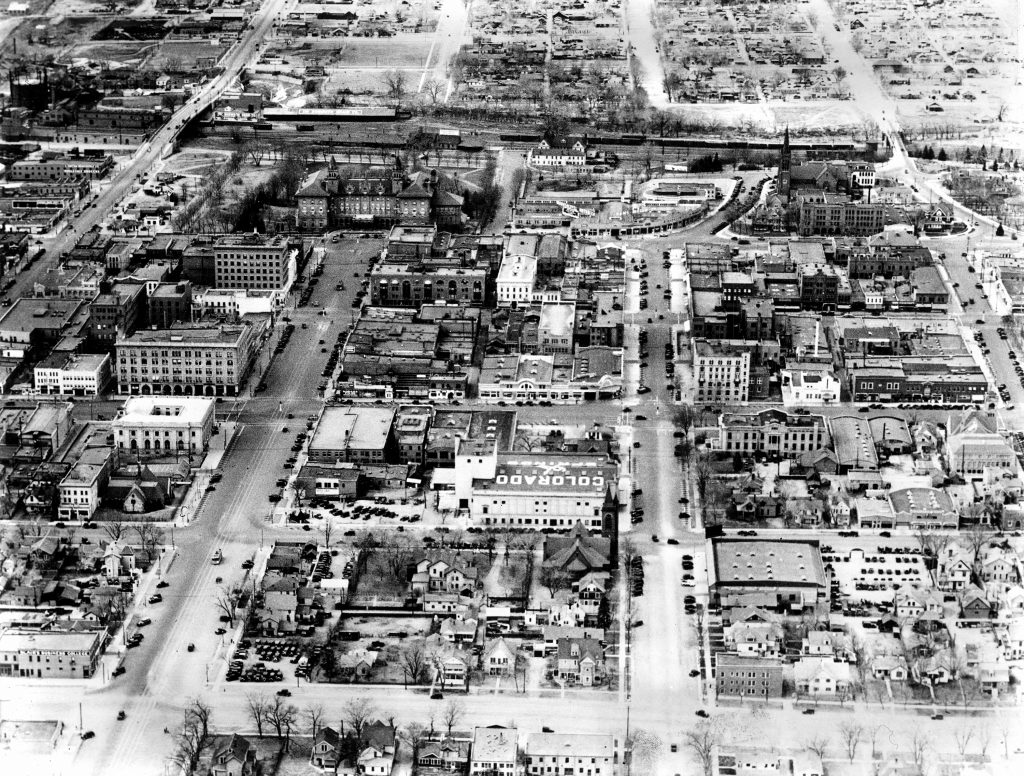May is Preservation Month, the perfect time to celebrate the Pikes Peak Region’s historic buildings, parks, and neighborhoods — and the advocacy, hard work, and dedication that comes with preserving these important places. The National Trust for Historic Preservation established Preservation Week in 1973 and extended it to the entire month of May in 2005. The words of the 1973 Presidential proclamation still hold true today: “As the pace of change accelerates in the world around us, Americans more than ever need a lively awareness of our roots and origins in the past on which to base our sense of identity in the present and our directions for the future.”
The CSPM Archives is honored to connect the community to our cultural landscape and built environment, through the preservation of photographs, ephemera, blueprints, maps, and more. Below are historic buildings that have defined downtown Colorado Springs for at least 100 years. Although their use has changed, they still stand; attesting to their significance. Archival materials teach us what their original use was, and may even help inspire what they will be in the future.
Would you like to know more about your historic home, a city park, or an historic building that has peaked your curiosity? Chances are, you’ll find answers at the Colorado Springs Pioneers Museum. Start exploring here: https://www.cspm.org/collections/archives-collection
City Auditorium, 1923
The City Auditorium first opened its doors to great fanfare in 1923. Colorado Springs citizens first showed their support of a municipal auditorium by approving a 1921 bond issue, proposed by the Chamber of Commerce.
The Classic Revival auditorium is designed by local architect Thomas MacClaren. The lobby is adorned with WPA-era murals by Broadmoor Academy artists Tabor Utley and Archie Musick. Throughout the years, a wide variety of events have taken place here; including New Year’s celebrations, horticultural arts shows, square dances, roller derbies, and theatrical performances.
In 2022, the Colorado Springs Community Collective became stewards of the beloved auditorium, pledging to raise $53 million to preserve the building’s interior and reinvent the interior.
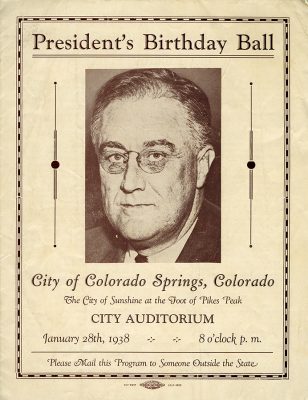
Payne Chapel A.M.E. Church, 1907
The Payne Chapel A.M.E. Church stands at the intersections of Costilla, Weber and Pueblo. It was built by members of the Church with sandstone from Bear Creek Canyon, and dedicated in 1907.
Through much of the 20th Century, Payne Chapel A.M.E. Church and St. John’s Baptist Church– two of the oldest churches in the City– served as bookends to Pueblo Avenue, pillars to the Black community of Colorado Springs, and a focal points in the Civil Rights movement.
Since the congregation relocated to a new church in 1986, the chapel has been home to various private enterprises. Today it is home to a brewery, eatery and wine bar.
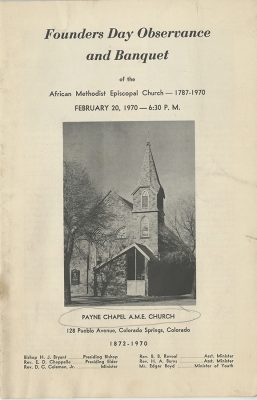
Denver & Rio Grande Railroad Depot, 1887
The first Denver & Rio Grande Railroad train arrived in Colorado Springs on October 26, 1871. The historic depot, that still stands today, was built in 1887.
Into mid-twentienth century, the Denver & Rio Grande Train Depot served as the gateway to the Pikes Peak Region. Thousands upon thousands of people — including health seekers, soldiers, and tourists–traveled to the region by train. The last passenger train left the DR&G Colorado Springs Depot in 1967.
In 1971 the new owners of the building — brothers Don, Larry, Charles, and Harlon Ochs saw that adaptive reuse would save the depot from demolition. The building was restored and reimagined to house restaurants and boutique shops. It was home to Giussepe’s Old Depot Restaurant for 38 years, and now hosts a new generation of restaurants and businesses.
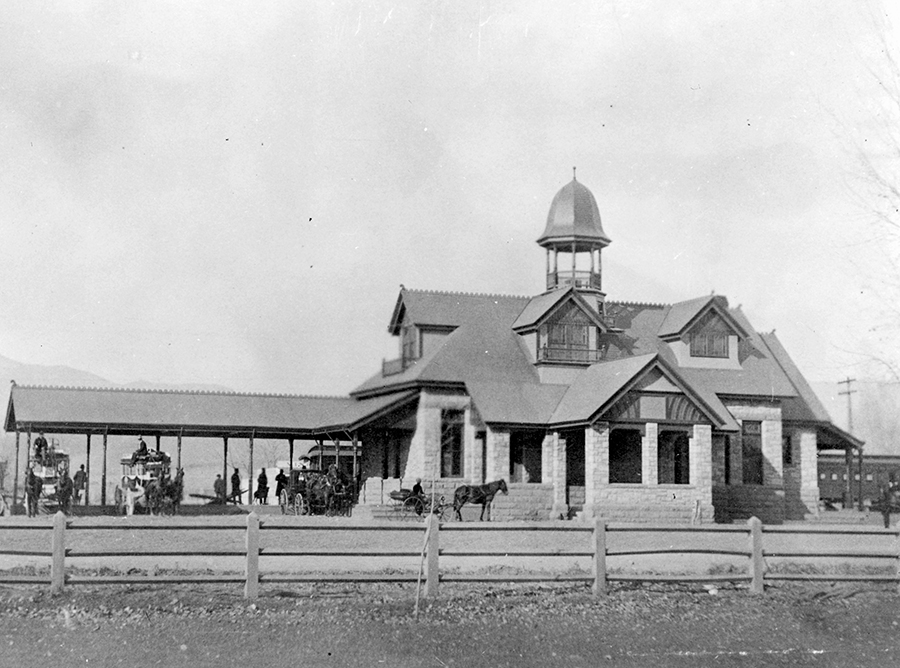
El Paso County Courthouse, 1903
The grand opening of the El Paso County Courthouse, designed by architect August J. Smith, was on May 18, 1903.
The courthouse was the central hub for the community. Along with the operation of four courtrooms, the County Sheriff, Treasurer, Clerk, and Surveyor all operated here. It also served as a gathering place for community meetings and events.
Following a population boom after WWII, county operations outgrew the building, and it was soon considered obsolete. In 1966, County Commissioners supported demolition of the courthouse. Thankfully, the public did not.
In 1972, largely due to the work of the Save the Courthouse Committee, the courthouse was added to the National Register for Historic Places and was dedicated as the home of the Colorado Springs Pioneers Museum seven years later.
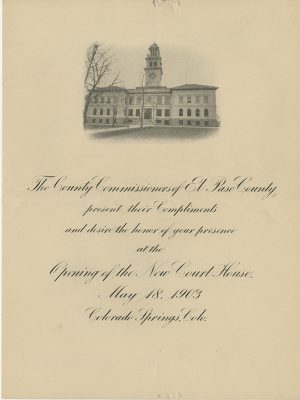

Hillary Mannion, Archivist
Interested in your own research about our community’s history? The Special Collections and Archives of the CSPM are housed in the Starsmore Center for Local History and include [s] manuscripts, photographs, ephemera, maps and blue prints, and a non-circulating reference library. Request an appointment to research.
719.385.5650 | Hillary.Mannion@coloradosprings.gov

